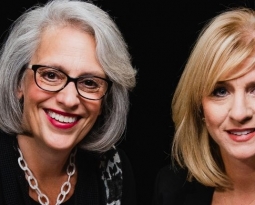A few years ago I was able to fulfill a longtime desire, to graduate as a Colson Fellow (formerly called Centurions), completing an intensive year-long biblical worldview study program. While I have participated in theology courses and numerous Bible studies before, this program was different. It stretched my thinking and further solidified my faith in the God of the Bible.
Now, theology is the task of using our minds to engage with Scripture and Christian teaching about Who He is and what He is doing. In other words, theology is how we meet Jesus. It’s how to have a relationship with Him that’s based on truth and based in reality. By loving God with our minds, we learn how to live in this world in light of what He wants us to know.
There seems to be a shift in the evangelical world today where believers have created their own “personal Jesus” as someone who hears our prayers and cares, but otherwise doesn’t make too many demands of us. It’s a faith that’s based largely on emotion and experience vs. intellect.
“The scandal of the evangelical mind is that there is not much of an evangelical mind.” That stinging first sentence opens Mark Noll’s game-changing book, “The Scandal of the Evangelical Mind,” which was published 25 years ago and helped inspire the work of the Colson Center. In the book, Noll takes American Christianity to task for failing to obey Christ’s command to love God not just with our hearts, souls, and strength, but also with our minds.
He identifies ways in which American believers—especially conservative Protestants—abandoned the intellectual life and higher education, preferring experience and emotion.
While there’s been a renewal of Christian interest in higher education including a renaissance of apologetics, ethics, classical schools, and of course, theology, there’s still so much work to be done.
In discussing this topic on a recent BreakPoint program, John Stonestreet shared:
A frequent piece of feedback I get here at the Colson Center goes something like this: “All of this theology and worldview reading and talk about ideas is great, but when can we just get back to Jesus?”
This personal Jesus thing goes hand-in-hand with a popular retelling of the story of redemption, in which God sent Jesus to help us escape this world and go to Heaven, where we’ll finally be free from human concerns and responsibilities—like, for example, studying theology.
The gulf between this Jesus and the Jesus of Scripture really could not be wider. In the account of creation, fall, redemption, and restoration, we meet a Jesus who is not less than our personal Savior, but is certainly so much more.
He’s revealed to us as the culmination of a cosmos-sized unfolding drama in which God restores His creation and His image-bearers to His created design and intent. He wants us to know this. He’s gone to great pains to make Himself known.
Don’t mis-hear me. Time in prayer, time in worship, time in fellowship are indispensable to knowing God, but asking when we can wrap up all this worldview teaching and get back to Jesus is just another way of asking how we can ignore the real Jesus—the one who requires us to be fully engaged, mind and all, in loving Him and others in this world.
For more information about BreakPoint and the Colson Center, particularly the Colson Fellows Program, go here.









